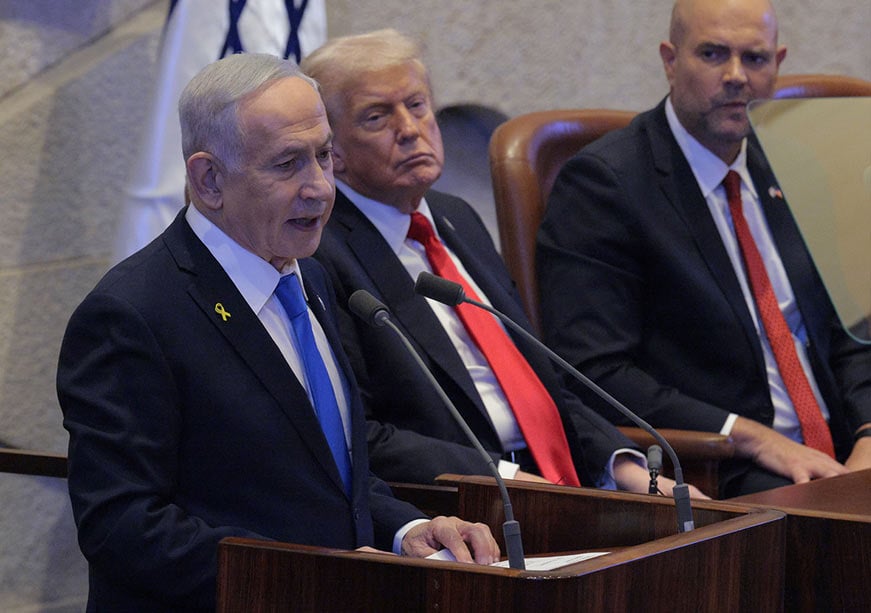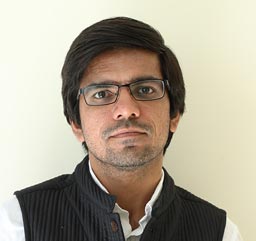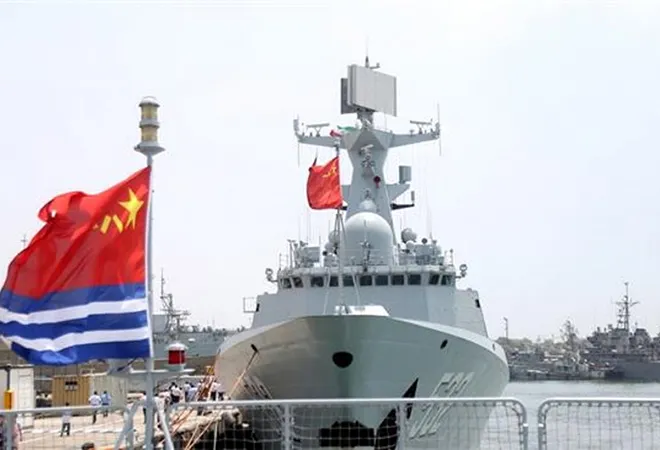Trump brokers a landmark Gaza peace deal, freeing hostages and reviving hopes of stability — but questions over enduring U.S. power in the Middle East linger.
The United States (US) President Donald Trump arrived in Israel as a deal between the Jewish state and Hamas was negotiated, leading to the release of 20 alive Israeli hostages under captivity since 7 October 2023, in exchange for almost 2,000 Palestinian detainees from prison. The exchange was executed smoothly, effectively removing a significant obstacle that had stood in the way of a lasting ceasefire.
Not far from Tel Aviv, Trump later gathered with leaders from across the Islamic world for a ‘Summit for Peace’ in the city of Sharm el-Sheikh. “This is the end of the age of terror and death,” Trump claimed during a one-hour long address to Israel’s parliament, the Knesset. In Egypt, Trump, alongside Egyptian President Abdel Fatteh al-Sisi, convened with leaders from Qatar and Türkiye, as well as a diverse group of European heads of state, to present a united front for the new peace initiative.
“This is the end of the age of terror and death,” Trump claimed during a one-hour long address to Israel’s parliament, the Knesset.
However, these recent successes also rekindle the question of Washington’s enduring power in the Middle East.
Since two years of war in the Gaza strip since Hamas’s audacious terror attack in 2023, the probability of peace no longer appears far-fetched. There were three core political reorientations over the past month which culminated in the realisation of this much needed off-ramp, which also included the deaths of over 67,000 Palestinians in the Gaza strip. While this is the official figure, several estimates suggest that the actual numbers may be considerably higher.
The first reorientation—an Israeli miscalculation—of conducting an air strike against Hamas negotiators in Qatar’s capital Doha, resulted in a domino effect. It not only agitated the White House, directly challenging Trump’s peace initiatives which culminated in Egypt and Israel yesterday, but also pushed Trump personally to further turn the keys on Israeli Prime Minister (PM) Benjamin Netanyahu who with the Qatari strike crossed a certain threshold. The Qatari leadership has been a forefront mediator on the Gaza crisis, and has hosted the political office of Hamas since 2012, set up at the request of the US presidency of Barack Obama.
Second, Trump’s pressure on Netanyahu was greater than the pressure the Israeli PM faced from his right-wing coalition partners, especially Finance Minister Bezalel Smotrich and the National Security Minister Itamar Ben-Gvir. Both Smotrich and Ben-Gvir have previously threatened to rock the coalition boat if a deal with Hamas was agreed upon and the stated aim of elimination of Hamas from Gaza was not achieved. These internal political tensions also contributed to the rare civil–military strain that unfolded over the course of the Gaza war.
Scholar Daniel Byman highlights that while Hamas’ capacities—both in manpower and otherwise—were weakened by relentless Israeli operations since 2023, war fatigue was also taking hold within Israeli society.
Finally, both Hamas and Israel were at a threshold. Scholar Daniel Byman highlights that while Hamas’ capacities—both in manpower and otherwise—were weakened by relentless Israeli operations since 2023, war fatigue was also taking hold within Israeli society. Mandatory military service, coupled with a declared ‘seven-front war,’ was creating social strain and, by extension, mounting pressure on Netanyahu to strike a deal and bring the hostages home. Although Netanyahu received adulation for the agreement during Trump’s Knesset speech, Israeli streets have been flooded over the past few months, with thousands of protesters demanding that the Israeli leader strike a deal and bring back the people. Ultimately, Netanyahu capitulated and became the first Israeli leader to sign an agreement of such nature with Hamas.
Going forward, the road to the peace agreement and the future of Gaza remains rocky. Hamas prevails in the Gaza Strip, and alternative political systems are yet to be stitched together. Netanyahu is unlikely to renege on his aim to permanently dismantle Hamas from the region. However, the US provided a personalised touch, which can be looked upon by Hamas as guarantees, to push this agreement over the line. While the risk for the same has been dispersed between the US and its partners in Egypt, Türkiye, Qatar, among others, Washington remains the proverbial ace of spades of the deck.
The US provided a personalised touch, which can be looked upon by Hamas as guarantees, to push this agreement over the line.
This raises fundamental questions about the future of American power in the Middle East. While direct US military intervention, at least under Trump, will not happen in the region, American political buy-in into the Middle East’s political processes has gone up instead of down. This impacts any attempts to reorient US grand strategy for the future. Through the administrations of Obama, Biden, and now Trump, a missing ‘Asia Pivot’ remains constant, implying that contestation with China is yet to receive clear policy and strategic clarity.
While the term ‘Asia Pivot’ today is lost amidst the myriad of conflict flash points peppered across the world, other China-specific ideations, such as de-coupling and de-risking, have also seemingly lost steam. In an era where middle powers are prophesying multipolarity, multi-alignment, and strategic autonomy, it is these states that are challenging hegemonic designs of power and politics that have prevailed following the Second World War. For the likes of both the US and China, managing these middle powers may end up being a harder task than managing each other.
The US remains the main geopolitical arbitrator. Instead of boots on the ground, it is political pressure and economic benefits that are leveraged.
For the time being, the US remains the main geopolitical arbitrator. Instead of boots on the ground, it is political pressure and economic benefits that are leveraged. However, it is worth noting that many of its allies, specifically amongst the Arab states, still seek deep security guarantees. Following the Israeli strikes, Qatar argued for and received the same. The US influence in the region far supersedes anyone else, including Russia, China, and even the Europeans, who have a colonial history behind them. This is a reality, fortunately or unfortunately, Washington will have to navigate as its own hesitations over the future of ‘Pax Americana’ unravel.
This commentary originally appeared in Observer Research Foundation.











